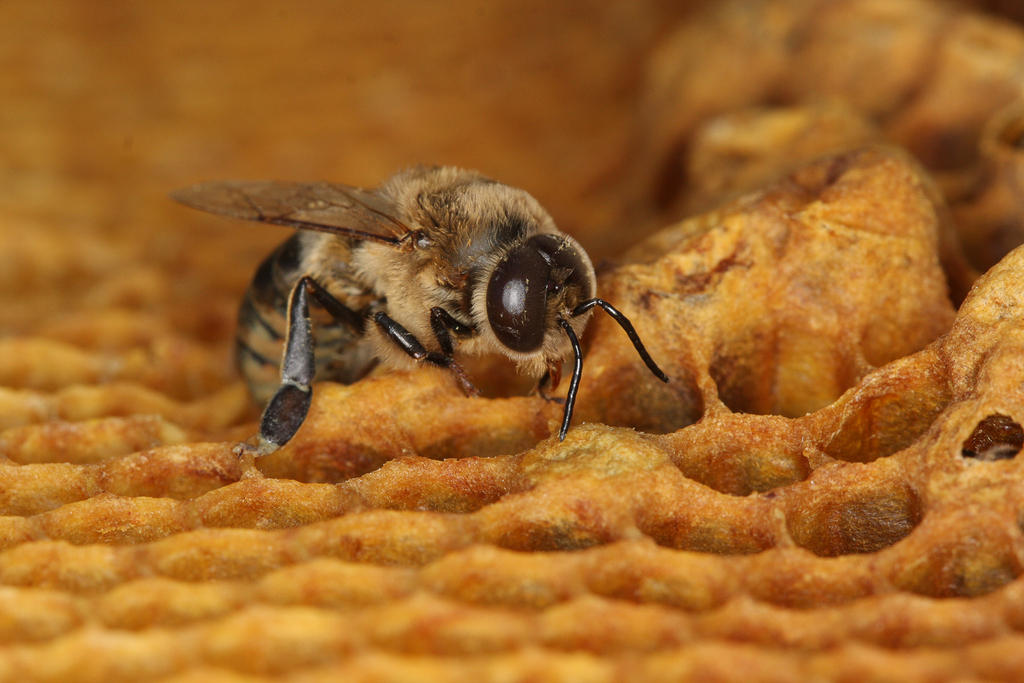
Bee association concerned about increasing imports

As the numbers of imported bee colonies from abroad continue to rise in Switzerland, the head of the national bee association has called for caution.
Mattias Götti Limacher, president of apisuisseExternal link, an umbrella group for beekeeping groups in the country, told Swiss public broadcaster SRF that the number of bees imported into Switzerland is becoming “frightening”.
According to customs statistics, four tons of bees were introduced to the country this year in April alone; the equivalent of some 1,500-2,000 colonies, or around 50 million honey bees.
This is almost as many as were imported in the whole of 2012 (5.5 tonnes). Last year, a total of 14.5 tonnes were imported.
Limacher, who said that 2018 has otherwise been an extremely good year for beekeepers (with abundant nectar and limited natural losses of colonies over the winter), said that imports were unnecessary; one could easily breed new colonies, he said.
In addition, the imports bring with them certain dangers, including pests such as the Varroa miteExternal link, which is hosted by and lethal to bees.
Many imports are also genetically unsuited, or at least unused, to Switzerland, said Limacher. Having developed in environments such as northern Germany or southern Italy, the mentality of the bees is not suitable for the Alpine nation. “It makes no sense to settle those bees here,” he said.
He has called for a ban on such imports, something that even he knows is out of the question, mainly due to international trade agreements and bilateral deals with the European Union.
Apisuisse will therefore focus its efforts on outreach and education, notably towards the next generation of beekeepers.

More
Swiss bee expert laments exaggerated focus on insecticides

In compliance with the JTI standards
More: SWI swissinfo.ch certified by the Journalism Trust Initiative






























You can find an overview of ongoing debates with our journalists here . Please join us!
If you want to start a conversation about a topic raised in this article or want to report factual errors, email us at english@swissinfo.ch.